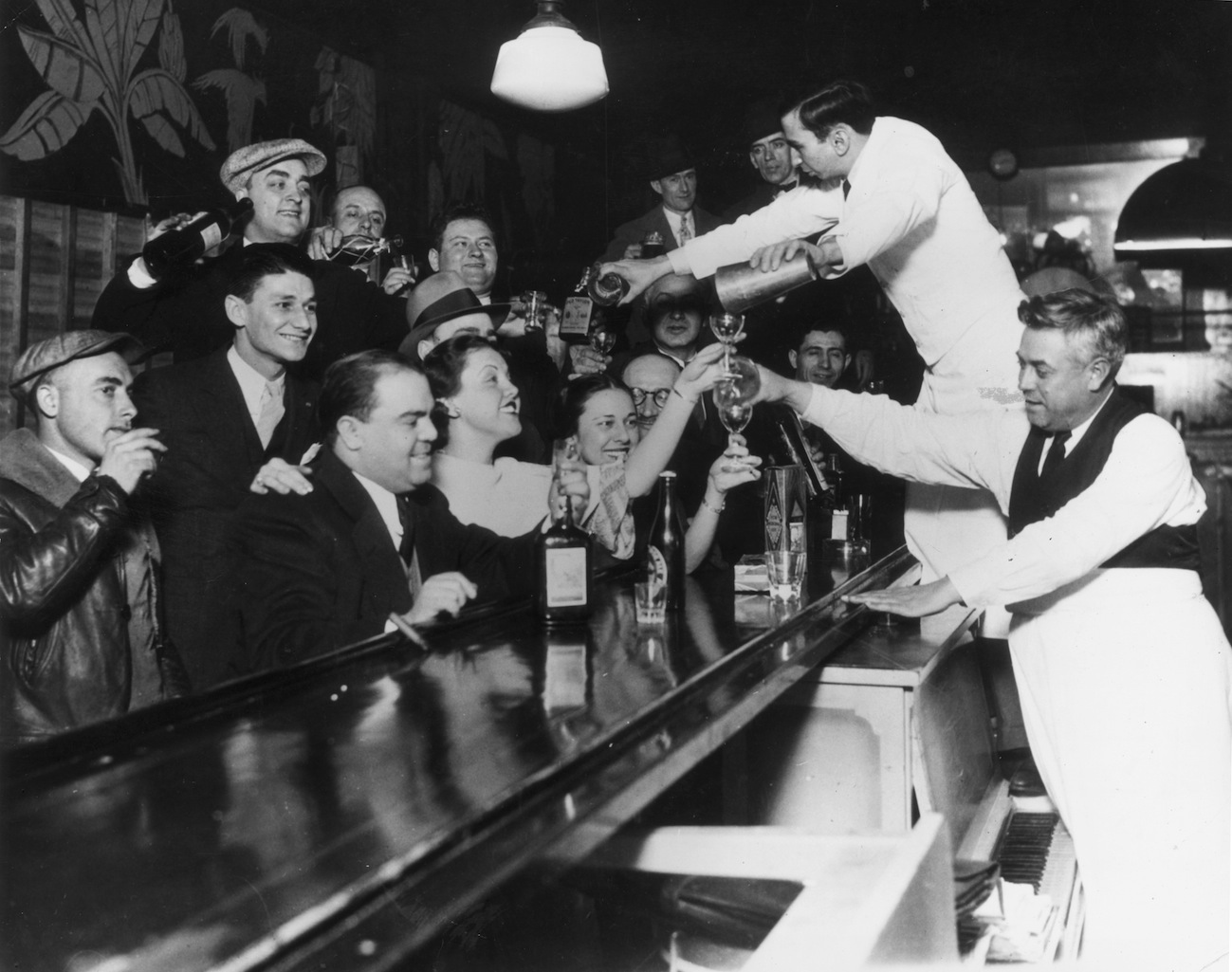
The 18th Amendment, which prohibited the production, distribution and sale of alcohol, easily ranks as the least popular amendment in U.S. history — and the only constitutional amendment ever to be repealed.
When the 21st Amendment was ratified on this day, Dec. 5, in 1933, it ended Prohibition 13 years, 10 months, and 19 days after it began. The time had not passed quickly, according to journalist H.L. Mencken, who noted, “It seems almost a geologic epoch while it was going on, and the human suffering that it entailed must have been a fair match for that of the Black Death or the Thirty Years War.”
The national experiment was a resounding failure, even according to some of its early supporters. Lifelong teetotaler John D. Rockefeller, Jr, had recanted his support the year before Prohibition’s repeal, in a letter published in the New York Times. He wrote:
When the Eighteenth Amendment was passed I earnestly hoped… that it would be generally supported by public opinion and thus the day be hastened when the value to society of men with minds and bodies free from the undermining effects of alcohol would be generally realized. That this has not been the result, but rather that drinking generally has increased; that the speakeasy has replaced the saloon, not only unit for unit, but probably two-fold if not three-fold; that a vast army of lawbreakers has been recruited and financed on a colossal scale… I have slowly and reluctantly come to believe.
While a Dallas newspaper editorial warned that Rockefeller’s change of heart “may in later years cause him deep regret,” William Randolph Hearst countered that Rockefeller’s opinion would help “bring the nation to calm conviction on the ineffectiveness of prohibition as a temperance measure.”
Early temperance advocates had warned that drunks were in danger — because of their high blood-alcohol levels — of spontaneous combustion (a claim that has since been proven impossible), but instead Prohibition sparked its own public health crisis. Drinking tainted bootleg liquor caused blindness, paralysis, and an estimated national average of 1,000 deaths a year.
Economically, the measure also failed to generate increased sales of clothing and household goods, which supporters claimed would skyrocket once breadwinners stopped throwing away their income in saloons. Sales of soda and juice were similarly expected to rise, along with entertainment industry revenue, as people sought ways to amuse themselves while sober. But those hopes were never realized; instead, the ban on alcohol cost the federal government $11 billion in lost tax revenue, according to Ken Burns’ documentary Prohibition.
President Franklin D. Roosevelt was among those relieved to witness the end of the era. “What America needs now is a drink,” he’s reported to have said.
Read a 1930 report on the 10th anniversary of Prohibition, here in the TIME Vault: Prohibition: Birthday
More Must-Reads From TIME
- The 100 Most Influential People of 2024
- The Revolution of Yulia Navalnaya
- 6 Compliments That Land Every Time
- What's the Deal With the Bitcoin Halving?
- If You're Dating Right Now , You're Brave: Column
- The AI That Could Heal a Divided Internet
- Fallout Is a Brilliant Model for the Future of Video Game Adaptations
- Want Weekly Recs on What to Watch, Read, and More? Sign Up for Worth Your Time
Contact us at letters@time.com